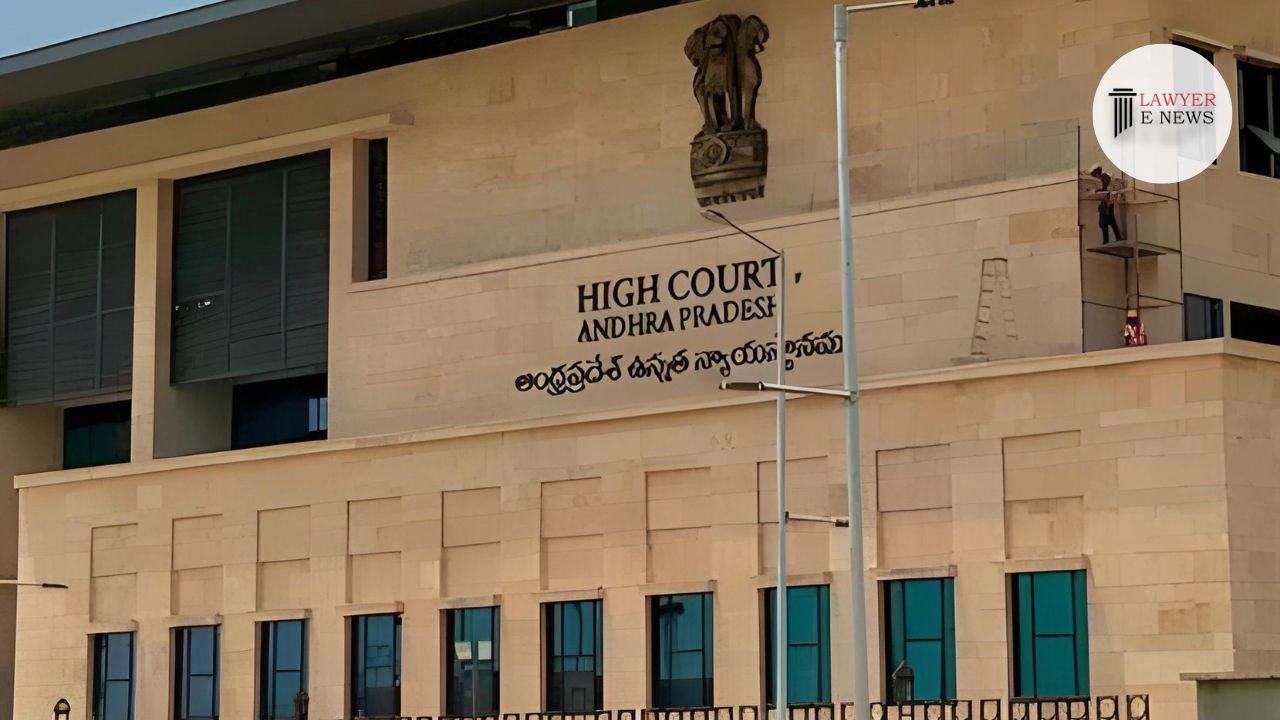-
by Admin
15 February 2026 5:35 AM



Medical Bills Supported by Evidence Cannot Be Rejected Without Inquiry - Andhra Pradesh High Court delivered a significant judgment enhancing the compensation awarded to the appellant, K. Srinivasulu, from ₹90,000 to ₹1,84,000. The court held that the Motor Accidents Claims Tribunal ("Claims Tribunal") had unreasonably denied the actual medical expenses incurred by the claimant and failed to appropriately account for the impact of the permanent disability suffered due to the accident. Justice Dr. V.R.K. Krupa Sagar presided over the case and criticized the Claims Tribunal for relying on assumptions unsupported by evidence.
The appeal arose from an order of the Claims Tribunal in M.V.O.P. No. 449 of 2009, which had awarded the claimant ₹90,000 in compensation for injuries sustained in a motor accident. The claimant, aggrieved by the inadequacy of the compensation, sought an enhancement, primarily contesting the denial of actual medical expenses and the inadequate compensation for permanent disability.
The appellant, a 32-year-old supervisor at a fast-food center earning ₹4,500 per month, was injured in a motor vehicle accident on November 25, 2007. He was traveling in an auto-rickshaw when its driver, driving rashly and negligently, lost control of the vehicle after encountering a cow crossing the road. The appellant sustained multiple injuries, including a grievous fracture to his left tibia, which required three surgeries and left him with a 20% permanent disability, including the shortening of his left leg.
The appellant filed a claim under Section 166 of the Motor Vehicles Act, 1988, seeking ₹3,00,000 in compensation from the owner and insurer of the offending vehicle. The Claims Tribunal awarded ₹90,000 under various heads, including ₹30,000 for medical expenses and ₹25,000 for permanent disability.
The appellant challenged the adequacy of the compensation, particularly the reduction of medical expenses from ₹1,08,385 to ₹30,000 and the inadequate consideration of his permanent disability.
"Unreasonable Reduction in Medical Expenses"
Medical Expenses: Tribunal Erred by Relying on Assumptions
The appellant presented medical bills totaling ₹1,08,385 (Ex. A.9), which reflected his actual expenditure on treatment, surgeries, and medicines. The Claims Tribunal, however, reduced the compensation for medical expenses to ₹30,000, reasoning that the appellant was treated at a government hospital where treatment was free, and the claimed amount appeared exaggerated.
The High Court found this reduction to be unjustified, observing:
"Merely because an injured person was treated at a Government Hospital does not automatically allow someone to reach a conclusion that one would not have spent any money for treatment. It is quite possible that relevant medicines or other articles required for surgeries may not have been available at the hospital."
Justice Dr. V.R.K. Krupa Sagar held that the Claims Tribunal had failed to properly analyze the evidence or elicit relevant information from the claimant or the medical witnesses. The court noted:
"The Claims Tribunal grossly erred in concluding a fact based on its own guesswork, unsupported by evidence. The medical bills presented by the claimant were not challenged by the respondents, nor was any contrary evidence produced."
Accordingly, the High Court awarded the appellant the full amount of ₹1,08,385 as actual medical expenses, enhancing this head of compensation by ₹79,000.
Permanent Disability: "Life-Long Impact of Shortened Leg Warranted Higher Compensation"
The appellant’s injuries resulted in the shortening of his left leg and a 20% permanent disability, as confirmed by medical evidence and the testimony of PW-2, the doctor. The Claims Tribunal awarded ₹25,000 for disability, reasoning that it did not impair the appellant’s ability to work as a restaurant supervisor.
The High Court, however, found this compensation inadequate. Justice Sagar stated:
"While the disability may not directly affect the claimant’s earning capacity, the lifelong impact of a shortened leg, coupled with the physical and emotional challenges it imposes, justifies a higher compensation."
The court noted the appellant’s young age (32 years) and the lifelong inconvenience caused by the permanent disability. It enhanced the compensation for disability by ₹15,000, awarding a total of ₹40,000 under this head to account for loss of amenities and diminished quality of life.
Final Judgment: Compensation Enhanced with Interest
The High Court concluded that the Claims Tribunal had failed to grant just compensation by improperly reducing the medical expenses and undervaluing the permanent disability. Justice Sagar ruled:
"The appellant made out his entitlement for the actual medical expenses incurred, and the Claims Tribunal’s reliance on unfounded assumptions was unreasonable. Further, the lifelong impact of the permanent disability warrants an enhancement in compensation for loss of amenities."
The court allowed the appeal, enhancing the total compensation from ₹90,000 to ₹1,84,000, with interest at 6% per annum from the date of the claim petition until realization. The insurance company and the vehicle owner were held jointly and severally liable to pay the enhanced compensation.
The court directed the insurance company to deposit the enhanced amount within one month, giving credit for any amounts already deposited.
Date of Decision: January 23, 2025
